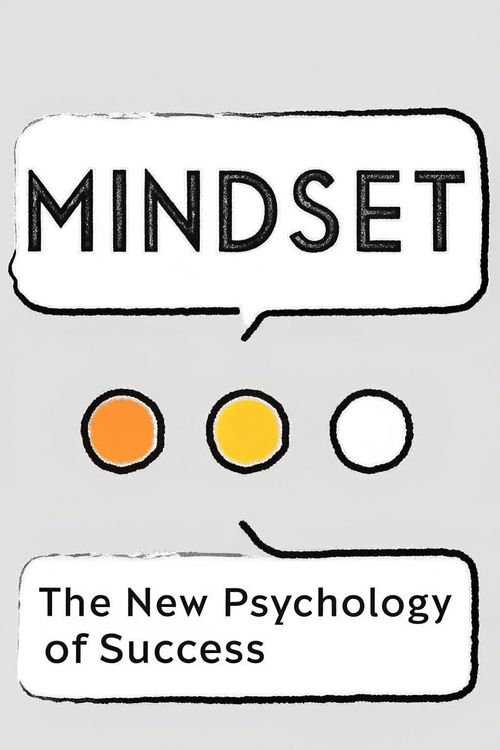
Rise Up: Break Free From Work Habits
Podcast by Let's Talk Money with Sophia and Daniel
Break the 12 Habits Holding You Back from Your Next Raise, Promotion, or Job
Rise Up: Break Free From Work Habits
Part 1
Daniel: Hey everyone, welcome! Today we’re going to discuss something super important, and maybe a little too relatable for many women at work: those invisible habits that might be holding them back. Sophia: Invisible habits? So, there's like a hidden list of career obstacles just sitting there? Sounds a bit… out there, already. Daniel: Well, it’s more than just a list, Sophia – it’s a whole deep dive. We're unpacking the book How Women Rise by Sally Helgesen and Marshall Goldsmith. It's like turning on a spotlight aimed at those normal behaviors that seem harmless but can actually slow down your career growth. Sophia: So, are we talking about things like saying "sorry" all the time or just quietly hoping someone notices how smart you are? Daniel: Exactly – and more! The book highlights 12 self-limiting habits that come from both societal expectations and our own tendencies, like not taking credit for achievements, overvaluing being the expert, or agreeing to everything. They use real workplace stories, research, and offer very useful solutions, so women can “really” take charge and transform their careers. Sophia: Sounds like a must read. So, what's our plan for today? Where are we going with all of this? Daniel: Good question! First, we’ll dig into the 12 habits that can hurt your progress – think of them as potholes on the road to success. Then, we'll look at actionable ways to change those patterns, like using peer coaching or making a "to-don't" list. And finally, we'll take a broader look at how women can lead in an authentic way and “really” shape the culture at work. Sophia: From identifying the problems to building new solutions – I get it. Let’s pave the way, shall we?
Identifying Self-Limiting Habits
Part 2
Daniel: So, picking up where we left off, we really need to start by identifying those self-sabotaging habits. Think of it as the diagnostic phase – that “oh no, I do that” moment, right? It really sets the stage for building new behaviors. It’s all about understanding those invisible barriers that, let's be honest, women often unintentionally create for themselves. Sophia: “Invisible barriers,” huh? Sounds like workplace ghost stories. So, what exactly are we talking about here? Daniel: Okay, let’s take something super common: reluctance to claim achievements. Imagine, someone does incredible work but insists it’s a group effort, or even worse, just brushes off the credit completely. Society tends to condition women to value humility, and while that feels virtuous, in the workplace, it often translates to missed promotions and overlooked impact. Sophia: Ah, so the system basically says, “Work hard, stay humble... then wonder why no one noticed?” That's kind of diabolical when you think about it. Daniel: Seriously! Like, take Ellen, a software engineer who's basically the glue holding her company's collaborative ecosystem together. But then, during her performance review, she hears her contributions weren’t “visible enough.” It's a brutal wake-up call. She just assumed that her output would speak for itself, and that clearly wasn't the case. Sophia: Let me guess – her boss is stuck in the "If I don't see it, it didn't happen" mentality. It's like people need giant neon signs just to register someone's value. Daniel: Precisely. Claiming your achievements is about being intentional, not boastful. You’re just creating clarity for others. I mean, it's kind of an imperative, not really an option. Sophia: Fair enough. But why does this land so unevenly? Why are men out there peacocking, invited or not, while women stress over what even counts as "too much?" Daniel: That double bind is so real. Assertive men are confident; assertive women? Often labeled arrogant or self-serving. So, reluctance becomes a coping mechanism – a way to just avoid criticism – but it backfires, because visibility is absolutely essential for career mobility. Sophia: Basically, damned if you do, forgotten if you don't. How uplifting. Daniel: Right? And that's where "expecting recognition without advocacy" really comes into play. A lot of women are brought up believing in this meritocratic ideal: hard work equals results. Don’t rock the boat, don’t self-promote – just “be good” and your worth will shine. Spoiler alert: it just doesn't work that way. Sophia: Ah, so the strategy is to sit in the corner being brilliant, hoping the spotlight wanders over? That’s not a plan; that's wishful thinking, at best. Daniel: Exactly! The workplace rewards those who speak up, not those who wait patiently. Recognition often follows visibility, not just effort alone. The sooner women adopt that mindset, the faster they can steer their careers. Sophia: Right, but what about personality, then? Surely some people are just wired to be, let's say, less... stage-hogging. Daniel: Good point. Advocating for yourself doesn’t mean grandstanding, though. It’s about strategically showcasing your work -- subtle but impactful shifts, like mentioning progress during team meetings, or forwarding praise from a client to your manager. Sophia: Speaking of shifts – let's add the people-pleasing epidemic to the mix. The "disease to please" might be the most relatable habit of all. Daniel: No argument there. Women are often socialized to prioritize harmony, prioritizing everyone else's needs over their own. This leads to overcommitting, exhaustion, and ultimately, sidelining their own goals. Like, I think of Nancy, a corporate superstar, who fell into this trap. She just wanted to support everyone – mentoring, committees, extra projects – but she spread herself so thin that her own deliverables suffered. Sophia: So, she was the office Swiss Army knife, but no one gave her credit for even being a powerhouse toolset? Daniel: Exactly! She became known as a reliable helper, not a strategic contributor. Worse, her pattern of over-delivering trained others to just expect it. Setting boundaries became a Herculean task for her, because she had built this perception of limitless availability. Sophia: Entirely self-constructed, too, which makes it both ironic and kind of tragic. Daniel: It's a slippery slope. People-pleasing can start with really well-intentioned effort, but then it just ends with burnout and diminished respect. Women have to learn that saying "no" strategically isn't selfish – it's an act of self-respect and professional savvy. Sophia: I’ll bet perfectionism fits into this pressure cooker, too. What’s more “pleasing” than delivering flawless, sparkly results every time, right? Daniel: Absolutely. The perfection trap is sneaky. It’s the belief that every task must be executed perfectly to prove your worthiness. Like, Vera, a marketing exec, learned this the hard way. Her obsession with perfection made her delay projects until they were polished to the extreme. Instead of boosting her credibility, though, it hurt her – her manager saw her as slow, overly cautious, and unwilling to trust her instincts. Sophia: So, her quest for perfection made her look... imperfect? That’s darkly poetic. Daniel: It is. And the irony is that perfectionism stifles innovation. You’re so focused on avoiding mistakes that you stop experimenting or moving with agility. Leadership isn’t about flawless execution; it’s really about adaptability and risk-taking. Sophia: So, Vera needed to let the rough edges show – do the PowerPoint with the typos, the "good enough" pitch – and learn to iterate as she went, maybe? Daniel: Exactly. That’s the mindset shift required. But it’s not just about output – it’s about dismantling that internal narrative that mistakes equal failure. Sophia: And what about minimizing? That feels especially insidious – like apologizing for even existing. Daniel: It’s so pervasive. Some women shrink physically in meetings, they use overly hesitant qualifiers – "I think," "maybe we could" – or they're constantly apologizing. One leadership consultant observed a brilliant woman repeatedly undercutting herself in a boardroom. Despite offering astute insights, her excess humility just drained the power from her contributions. Sophia: So, while the guys pound the table and say, “Here’s the answer,” she's whispering it like it's just a hunch she has. I can see how that would be frustrating – both for her and for her audience. Daniel: Exactly. Minimizing stems from the fear of being seen as domineering or overconfident, but it reduces credibility and obscures influence. Women really have to unlearn this instinctive need to shrink and embrace the act of just taking up space as a form of leadership, not aggression. Sophia: Okay, so I’m hearing a recurring theme: women are adapting to systems that punish them for standing out, yet those same systems somehow require you to stand out in order to succeed. That's psychological whiplash. Daniel: It absolutely is. Each habit – reluctance to claim achievements, expecting recognition, people-pleasing, perfectionism, and minimizing – is a pattern rooted in societal narratives. They’re not flaws, per se, but adaptive mechanisms. The key is rewiring those mechanisms to serve, not sabotage, professional growth.
Strategies for Behavioral Change
Part 3
Daniel: So, understanding these habits is really just the first step. Now we need to talk about how to actually do something about them. That leads us to the core of it: actionable strategies. We're moving past just identifying the behaviors and on to giving you concrete tools to deal with them. It's all about turning awareness into action. Sophia: Okay, so now we're getting to the nitty-gritty, right? The "how-to" guide to How Women Rise. Solutions, action steps, roadmaps... I’m ready. How do you actually rewire these habits that are so deeply ingrained, without just giving up after a couple of days? Daniel: Well, first things first: start with one habit. That's what Helgesen and Goldsmith really stress. Trying to change everything at once? Burnout city. Pick one behavior, really focus on it, and make small changes. So, for example, let's talk about overcommitment—a big one under that "disease-to-please" umbrella we were talking about. Sophia: Ah, yes, the "Yes Woman" syndrome. I'm picturing someone completely swamped—back-to-back meetings, tons of side projects, even planning office birthdays on top of everything else. Daniel: Exactly! The book talks about Miranda, a lawyer who was the picture of an overcommitted professional. She said yes to every request, every committee, every chance to please her colleagues. But her real work, the stuff she was actually passionate about, suffered because her plate was just too full. Sophia: So, she became the office juggler, and everyone loved watching her, but she ended up dropping the balls that mattered most to her. Ouch. Daniel: Right. So, with some mentoring, Miranda developed this simple habit of pausing before she answered any request. Sounds easy, doesn't it? But it was revolutionary for her. If the request didn't align with her priorities, or didn't get her closer to her goals, she gave herself permission to say no. And slowly, just by focusing on that one habit, she took back control of her time, her energy, and her workload. Sophia: "Pause before you pounce." I like that. It's practical. And I bet tackling that people-pleasing thing early had a ripple effect on other patterns, too, right? Daniel: Definitely. Focusing on one habit isn't just easier, it's strategic. Success builds momentum. When Miranda saw the results of saying no, she was motivated to tackle other things, like playing down her achievements. Those small wins really do pave the way for the bigger transformations. Sophia: Smart. Okay, devil's advocate time: Doesn't that sound kind of lonely? Breaking habits can feel like climbing Mount Everest alone, especially when you're dealing with really ingrained beliefs. Doesn’t support matter a lot here? Daniel: You're absolutely right. Support is essential. And the book has this great strategy: peer coaching. When women work together, sharing insights, holding each other accountable, the journey becomes a lot less daunting. There's this great example about Jeri, a communications consultant who got into this habit of over-accommodating client demands. She turned it around by working with peer coaches. Sophia: Okay, so peer coaches... what is that, exactly? Like accountability partners? Are we talking workout buddy vibes, but for professional growth? Daniel: Pretty much! But with a little structure. Jeri and her peer coach made time for regular check-ins where they really dug into their challenges and progress. Jeri was working on setting boundaries, you know, no more saying yes to client requests that stretched her too thin. And during those conversations, her partner helped her see the moments where she hesitated or faltered when she was trying to assert herself. Sophia: I love that. The mirror—someone who reflects back what you don't always see yourself doing, like those slips into old habits. Daniel: Exactly. And peer coaching also gives you encouragement. Because let's face it, enforcing boundaries can bring on the guilt. Over time, Jeri let go of her fear of disappointing clients and she learned how to negotiate better. She focused on building stronger partnerships, prioritizing what mattered instead of just stretching herself to the breaking point to avoid conflict. Sophia: Yeah, I can see how that accountability piece keeps you honest. If you're just left to your own devices, it's easy to let things slide. You justify with, "Well, just this once..." and suddenly, you're right back where you started. Daniel: Exactly why shared accountability works so well. It pushes you to stick to your goals and keeps you focused on the bigger picture. Plus, it's not just about discipline, it's about making the process human. Those support systems create empathy, and that makes the whole journey less isolating. Sophia: And less laced with self-judgment, ideally. Speaking of avoiding judgment, tell me about this "feedforward" thing I keep hearing about. Sounds... forward-thinking? Daniel: It is! Feedforward is this amazing concept the book talks about. Unlike traditional feedback, which is about what you've done wrong in the past, feedforward is future-oriented. It's constructive, action-focused—what you can do to improve going forward. Sophia: Past equals critique; future equals progress. I like it. But how does it work? Give me a visual. Daniel: Okay, picture Taylor, a manager who struggled with these really detailed, emotionally heavy presentations—a classic "Habit 10" issue, “Too Much.” Traditional feedback just made her feel defensive, focused on what she’d done wrong. Then her mentor suggested feedforward. So, Taylor asked trusted colleagues to give her three specific suggestions for simplifying her communication style. No judgment, no post-mortem on past mistakes. Just actionable insights. Sophia: Like "Speak less, say more!" Daniel: Exactly. Suggestions like starting presentations with clear takeaways or using bullet points instead of dense paragraphs really helped Taylor. Not only did her communication improve, but she also stopped obsessing over her mistakes. Feedforward shifted her focus from hindsight to possibility—it was a game-changer. Sophia: And I'm guessing it's a lot easier to stay motivated when you're not constantly wallowing in the negativity of past errors. Sounds like a way to dodge that cycle completely. Daniel: That's the brilliance of it. Feedforward just aligns so perfectly with growth and momentum. By reducing the weight of judgment, it lets women move through change with more confidence and optimism. Sophia: Yeah, I'm starting to see a pattern here. These strategies work not because they completely overhaul women’s worlds overnight, but because they carve out manageable paths for steady, authentic progress.
Redefining Success and Empowerment
Part 4
Daniel: So, with these tools, the conversation shifts to bigger stuff: personal and systemic transformation. Which leads us to today’s core question: how do we redefine success and empowerment? And make sure it's something that not only resonates with women, but also transforms workplace cultures, right? Sophia: Okay, so we're not just tweaking individual habits, we're rewriting the whole darn playbook. Big stage, big stakes. Where exactly do we even start with something like that? Daniel: Well, it starts with redefining success itself. The old model, you know, promotions, titles, salaries, that often overlooks things like personal fulfillment, collaboration, ethical alignment. How Women Rise really pushes us to challenge that thinking and embrace a more inclusive, multifaceted vision of success. Sophia: Sounds great in theory, but isn’t there a catch? Those traditional success metrics—high-paying jobs, corner offices—they still come with real benefits. Who's gonna say no to that, especially after years of hard work? Daniel: Right, absolutely. But the authors make a point that women often achieve those milestones and then find them...empty. Like, take Carrie’s story. She spent years chasing senior roles, recognition, and when she finally got to the top, she realized it wasn't what drove her anymore. What truly fulfilled her was working with her team on sustainability projects, something that aligned with her values and ignited her passion. Sophia: So, she climbed the mountain only to discover it wasn't the view she wanted. Ouch. That's gotta sting. Daniel: It did. But it also gave her a chance to pivot, right? She redefined success from "climbing the corporate ladder" to making a meaningful impact and actually enjoying the people she worked with. That shift didn’t mean giving up on ambition at all. It just meant aligning her ambition with her actual priorities. Sophia: Reframing like that sounds liberating, but how many workplaces actually support it? Some industries are still stuck in the "win at all costs" mentality. How do you opt out of the rat race while still having to compete in it? Daniel: That’s exactly why systemic change is absolutely key. Workplaces need to value diverse measures of success for everyone to thrive. Women bring strengths—collaboration, empathy, long-term vision—that go way beyond just individual achievement. And when those things are valued, everyone benefits, right? Sophia: Hold on a sec. Aren't those "relational" traits usually treated as, like, side dishes on the leadership plate? Nice to have, but definitely not the main course? Daniel: Unfortunately, yes, and that's exactly the problem, right? Women like Ana, the "connector," often find their relational skills undervalued. Ana was driving collaboration across silos, boosting team cohesion, spearheading initiatives, and yet she was seen as just someone who facilitated, not someone who led the charge. Sophia: It's like being in charge of the plumbing in a skyscraper, and everyone says, "That's cute, but we really care about the architect." Daniel: Exactly! So, to reclaim empowerment, women like Ana need to connect their work directly to the bottom line – like improved project timelines, or higher team retention rates, right? Once Ana framed her contributions as organizational assets, she earned a leadership role pretty darn quick. Sophia: So, it's a marketing issue. They've got the product; they just need to package it in a way the system understands. But what happens when the system itself is the problem? Daniel: Then the system needs some serious disrupting! Systemic barriers, like unconscious biases, can devalue women's contributions, even when they drive real results. Look at Ellen, the software engineer we talked about earlier. Her work directly improved her company’s success, but because her role wasn't considered "flashy," she got overlooked. Sophia: Sounds about right. If you're not center stage belting out the main aria, nobody claps for the orchestra down in the pit. So what did Ellen do – grab a megaphone? Daniel: Not quite, but she strategically advocated for her work. She brought data showing how her efforts saved costs and boosted team output so her contributions became impossible to ignore. Her success just reinforced the point that organizations have to fix broken recognition systems to empower all their employees. Sophia: But will companies actually “do” that? Or is this all just wishful thinking? I mean, businesses usually care most about the bottom line, not equal recognition, right? Daniel: You might be surprised. Research shows that inclusive workplaces are more profitable and innovative. For instance, one company redefined leadership criteria to include relational strengths and mentorship programs for women. The result? More promotions, better engagement, improved productivity. Sophia: Interesting. So they swapped out "individual star" practices for "team constellation" models, and it actually paid off. That’s... refreshing, actually. Daniel: It is. And let’s not forget empowering women isn’t just about external validation. It’s also about internal transformation. The book also has something called a “to-don’t” list, which helps people shed behaviors that no longer serve them--like saying yes to low-impact tasks out of guilt. Sophia: So, instead of writing down all the things you need to do, you list everything you shouldn't do. Sounds counterintuitive, but I kind of love it. Daniel: It’s so freeing. When women consciously identify what holds them back—whether it’s perfectionism, over-apologizing, or people-pleasing—they create space to embrace higher-value opportunities. It shows confidence and reinforces their own priorities. Sophia: Gotcha. So, this is about empowerment on two different levels: personal clarity and systemic accountability. Women rewrite their own stories while also pushing organizations to be fairer? Daniel: Exactly! It’s a dual transformation. When women reclaim their time, their voice, their priorities, they influence others to do the same. Combine that with workplace reforms – like bias training, flexible work arrangements, leadership initiatives – and you've got a solid foundation for lasting change. Sophia: Sounds like a lot of hard work. But if redefining success means balancing personal fulfillment with systemic change, I guess it's worth the effort.
Conclusion
Part 5
Daniel: Okay, so, to recap, we've “really” dug into the heart of How Women Rise. We've covered the 12 self-limiting habits that often hold women back, things like being hesitant to take credit for accomplishments, trying to please everyone, and that old devil, perfectionism. And we also looked at some really practical strategies, like focusing on one habit at a time, the power of peer coaching, and using "feedforward" to “really” focus on growth. Lastly, we talked about how we need to redefine success – both in terms of personal fulfillment and how we can change the system - making sure that women’s contributions are truly seen, valued, and, yes, celebrated. Sophia: Right, so it's not about some massive overhaul, right? My takeaway is that breaking these habits isn't about aiming for perfection; it's about those consistent, small wins that build up over time. It's like... compounding interest, but for your career. Daniel: Exactly! And the key takeaway here? For all the women tuning in, I encourage you to “really” reflect on one habit that resonates with you. And for companies, think about whether your culture is actually rewarding the behaviors you want to see. And if it's not, well, what needs to change? Real progress starts when people rethink their own habits, and organizations are willing to rewrite the rules. Sophia: And look, let's be honest, when women rise, it's not just one group that benefits. A healthy culture and diverse leadership, that lifts everyone. So, think of this as your call to action. Take one step, make one shift, and start climbing. Change, just like success, doesn't happen automatically. It's about intention. So make it intentional. Daniel: Absolutely, couldn't agree more. So, until next time, let’s keep rising, together.









